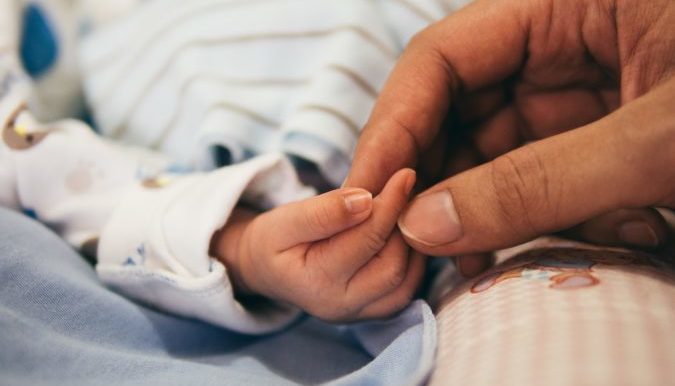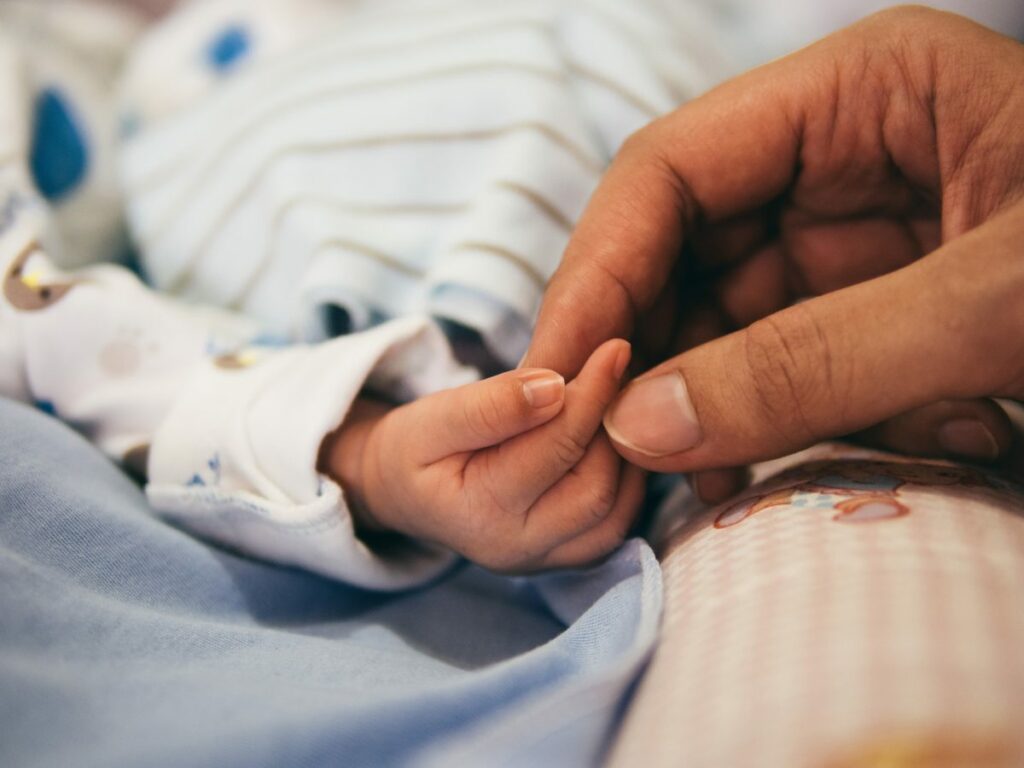
Paige approached us to investigate potential failures in her son’s neonatal care. Her son, Rhys, is severely disabled and has both physical and cognitive injuries, and Paige felt that this could be caused by some of the problems experienced during his medical care.
Rhys was born at 33+4 weeks’ gestation and was treated with antibiotics at delivery due to maternal GBS. Rhys was discharged home approximately 3 weeks after birth. The following week, Rhys became unwell. He was vomiting, would not wake for feeds or latch on, was very sleepy and felt very cold. Paige telephoned the Special Care Baby Unit for advice and was advised to call 111 which she did. Paige was advised to take Rhys to the Out of Hours GP service which was next to the A&E department, so that he could be seen quickly if needed.
On arrival, the GP was unaware of the advice previously given to Paige by 111. The GP performed a brief examination of Rhys checking his temperature. Rhys’s temperature was low, but the GP advised this may not be accurate as the thermometer was not the right size. The GP suggested that Paige should try to feed Rhys and they were left for around 20 minutes. Paige struggled to feed Rhys. When the GP returned, they advised that since Rhys had fed and the examination was normal, it was safe to discharge Rhys home.
Paige remained worried that something wasn’t right with Rhys. He began making an odd sound which she now knows was grunting. Paige rang the GP and they both attended an appointment that afternoon. Rhys was now unresponsive, grey, grunting and cold. The GP quickly knew something wasn’t right and phoned an ambulance. On arrival at hospital, Rhys was ventilated, given antibiotics and diagnosed with late onset GBS meningitis.
How we supported our client
After initially speaking with our client, we got a full set of her and her child’s medical records. We prepared a statement for our client setting out exactly what happened and sent this to independent experts who gave their advice on the standard of care provided and whether that had caused Rhys’s disability. We then wrote to the Out of Hours GP and provided them with a Letter of Claim. This is a document that sets out our allegations of negligence i.e., what aspects of their care fell below the reasonable standard expected of an Out of Hours GP and what this substandard care has caused on the balance of probabilities. We don’t have to show as a matter of certainty that the substandard care caused the disability but that there is over a 50% chance it did.
Our case was that had the Out of Hours GP referred Rhys for a paediatric assessment, he would have been seen immediately. The history taken would have revealed that Mum had GBS and that Rhys wasn’t very responsive, wasn’t feeding well, was vomiting and had hypothermia. Rhys would have been admitted to hospital most likely with sepsis and he would have received antibiotics which would have most likely prevented his neurological injuries.
The GP’s insurers made a full admission of liability. Whilst this is a good outcome from a legal perspective and means our client’s claim can be concluded quickly, we appreciate that it is often difficult for parents to come to terms with such an admission as had the poor care not occurred, their baby would not now be suffering from his life-changing injuries.
The next steps were for us to investigate the future for Rhys i.e., how would his injuries develop and what would his prognosis be? This is what we call undertaking ‘quantum’ investigations and enable us to place a financial value on the case. This process involved us instructing experts to advise on Rhys’s needs as a result of his injuries and condition, including:
- Care
- Case Management
- Accommodation
- Occupational Therapy
- Physiotherapy
- Speech and Language Therapy
- Educational support
- Dietary support
- Loss of earnings
It was important for us to work closely with Rhys’s parents, Rhys and the medical and other experts throughout the investigations to ensure that Rhys and his family were fully supported and guided through the process, to ensure that our proposals were in line with the families wishes and hopes for their child and to ensure that Rhys was compensated fairly for his extensive lifetime needs. Our client’s claim is still ongoing, but the next steps once the quantum investigations are finished will be to engage in settlement negotiations with the GP’s insurers to try and reach a settlement for our client without having to go to trial.
We know that no amount of money is ever going to change the injuries that our client has suffered but the hope is that on conclusion of the claim, our client will now be able to reach his full potential and lead a full and rewarding life. In addition to the legal claim, we also signpost our clients to various charities for additional support. Clients in turn often want to give something back to the charities through volunteering and fundraising. Families can also get in contact with other parents whose children have suffered the same or similar injuries and so build a further support network. One of these charities is Group B Streptococcus Support who Enable Law have supported for many years.
*Name and some facts have been changed to preserve anonymity
What is the GBS 3 Trial?
The GBS 3 Trial is a clinical trial of routine testing pregnant women for Group B Strep in the UK. It is designed to establish whether testing all pregnant women is better than the UK’s current approach, which is a risk-based approach identifying which newborn babies are most likely to develop GBS and, if a risk factor is identified, offering the mother antibiotics during labour to reduce this risk.
800 babies a year suffer Group B Strep infection, causing death and lifelong disabilities. Most GBS infections are preventable. This trial will establish how best to prevent Group B Strep infection in babies.
The trial will also compare two different testing approaches:
- ECM (Enriched Culture Medium – swabs taken from the lower vagina and rectum and sent to the laboratory) at 35-37 weeks of pregnancy; or
- A PCR (Polymerase Chain Reaction – swabs taken from the lower vagina and rectum which are then placed in the PCR machine) test in labour.
The findings are due to be reported in 2024.
Group B Strep Support
An increased awareness of GBS, both by parents and by the medical profession is vital.
In order for the GBS3 Trial to go ahead, 80 hospitals in England, Wales & Scotland need to sign up by September 2022. Therefore, GBSS have launched a campaign to encourage hospitals to sign up. To date, 30 hospitals have confirmed they are participating.
How can you help to eradicate GBS infections in our hospitals? You can email your MP and get your local hospital to enrol in the trial. It is so easy to do following this link – it will take you no more than a minute!
Are you concerned about an injury your child has suffered that could be related to GBS?
At Enable Law, we work closely with our clients whose babies have either died or been severely brain injured due to GBS infection. We ensure that our client’s get the support and advice they need at such a devastating and difficult time in their lives. We strive to effect positive change with every family we work with and are committed to increasing awareness of GBS.
You can read more about our work with GBSS on our dedicated Group B Streptococcus page or if you would like to discuss any aspects of your care please call us on 0800 044 8488.
Get involved on social media:
Facebook: @GroupBStrepSupport
Twitter: @GBSSupport
Instagram: @GroupBStrepSupport
LinkedIn: @@GroupBStrepSupport
#GroupBStrep
The hashtag for the campaign is #EndGBSinfection






